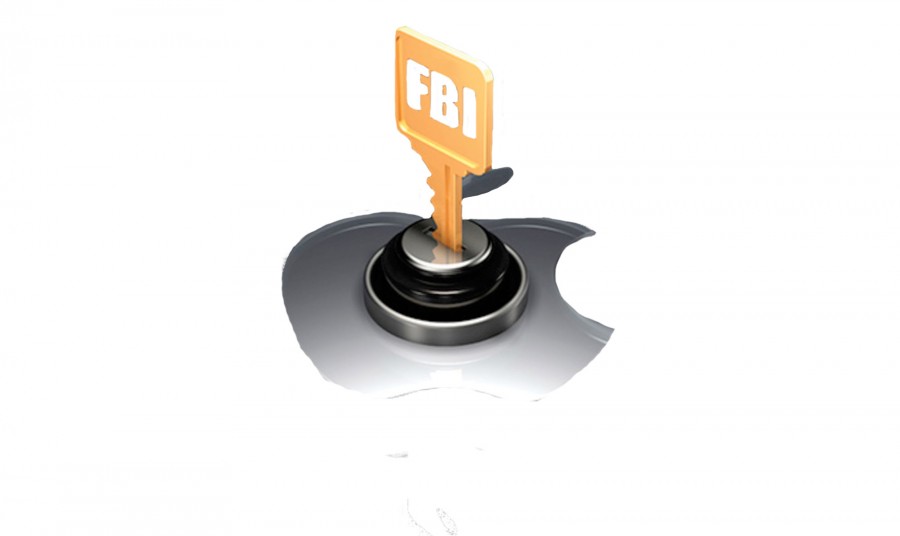iPrivacy
March 31, 2016
Position Statement: Demands by the FBI for Apple to create an “all access” iOS operating system that would allow them to access data and information from any iPhone are not only an overreach of power by the federal government, but also could pose extreme security risks and are a violation of our personal security and freedom as American citizens.
On Dec. 2, 2015, 14 people were killed and 22 were seriously injured in a terrorist attack on San Bernardino, California. Since then, the FBI has been in a heated legal dispute with Apple, Inc. over unlocking the terrorist’s phone, which they cannot do without Apple disabling security features on the phone for them. However, the encryption and security of iPhones is so complex that even Apple doesn’t possess the ability to do so without designing an entirely new iOS, which is what the FBI wants them to do.
The demands for Apple to unlock the San Bernardino terrorist’s phone aren’t as simple or as useful as they may seem. First, it seems as though anyone connected with this attack or with ISIS would have dropped off the face of the Earth as soon as it happened. Plus, it’s not like the terrorist would have blatant text messages or other key information that the government could potentially use just lying on his phone. The government attempting to fish around in the terrorist’s phone isn’t worth the trouble doing so would cause.
So what exactly is that trouble? In order for Apple to unlock the phone, they would have to design an entirely new and revamped iOS operating system with literally less security than the current OS has. The danger of designing this OS is that it hasn’t been done yet, and once the method to do so has occurred, there’s no telling whose hands it could fall into. Apple would effectively be creating a master key for every phone on the planet, and although they could strive to keep it safe and out of the hands of terrorists, in today’s extensively technologically focused world, there’s no way to ensure that.
It’s dangerously and horrifyingly easy for methods and code to fall into the wrong hands, and the power of what the new iOS could do and the security it would eliminate would be detrimental if acquired by hackers or terrorists. Sure, you can say up front that this OS would only be used for specific scenarios, such as San Bernardino, but once Apple has submitted once, what’s to stop the government from demanding the same thing again and again for any case that follows suit? “Last Week Tonight” host John Oliver puts it beautifully, “Think of the government as your dad. If he asks you to help him with his iPhone, be careful because if you’re going to do it once, you’re going to be doing it 14 times a day.”
One of the most glaring questions with this entire debacle is whether the government even has the right and authority to do what it is demanding. The FBI is citing the All Writs Act of 1789, a 230-year-old law, to justify its demands to gain access to iPhones for criminal cases. This Act basically says that U.S. Courts can issue any and all writs necessary within the constraints of the law to aid in jurisdictions. Citing of this Act by the FBI is simply an overreach of power, and is an example of the government taking an age-old act way too far. If they can use this Act to gain access to any phone for criminal cases, then what is to stop them from intercepting text messages or tracking health records too?
The magnitude of this case cannot be overstated. Despite the government recently gaining access to the terrorist’s device via alternate means, the debate that is slowly beginning to emerge as this case gains more and more popularity is an age-old one: how far can the government’s power extend into our personal lives? Should the government be allowed access to all of our personal records and phone use in order to better monitor possible acts of crime and terrorism?
The answer is no. The United States of America was founded on the fundamental basis of personal freedom. The government wasn’t designed to reach into our personal lives and monitor everything we do. As Americans, we have certain constitutional rights such as life, liberty and the pursuit of happiness, and most importantly in this case rights to privacy and security. The government being able to monitor our phone use is a flat-out violation of our personal privacy, and this case is something that no one should take lightly. As Benjamin Franklin once said, “Those who would give up essential liberty, to purchase a little temporary safety, deserve neither liberty nor safety.”
Staff Vote: 18:8





















![Movie poster for '[Rec]" (2007).](https://www.lionnewspaper.com/wp-content/uploads/2023/04/rec-640x900.jpg)


